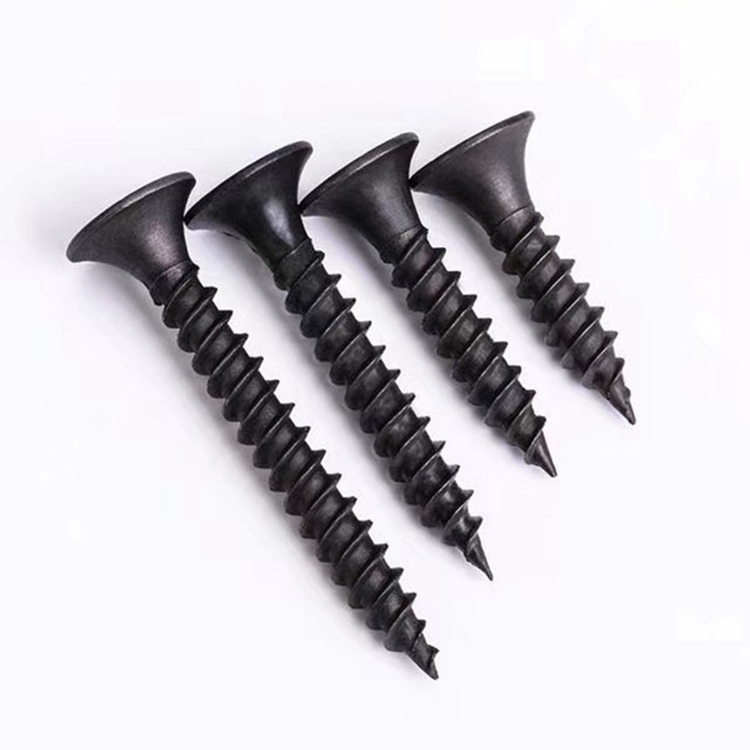Factory for Manufacturing M4x0.7 Stud Bolts with High Quality Standards
Dec . 14, 2024 00:59 Back to list
Factory for Manufacturing M4x0.7 Stud Bolts with High Quality Standards
The Significance of M4x0.7 Stud Bolt Factories in Modern Manufacturing
In the realm of modern manufacturing, the importance of precision components cannot be overstated. Among these vital components is the M4x0.7 stud bolt, a type of fastener characterized by its fine threading and reliable performance. This article delves into the significance of M4x0.7 stud bolt factories, exploring their role in various industries, the manufacturing processes involved, and the challenges they face.
Understanding M4x0.7 Stud Bolts
The M4x0.7 stud bolt is a metric fastener, where M4 denotes a nominal diameter of 4 millimeters and 0.7 indicates the pitch of the thread, which is the distance between threads. These bolts are widely used due to their versatility and robustness, making them suitable for multiple applications—from automotive manufacturing to electronics assembly. They provide secure, permanent fastening solutions that are essential in ensuring structural integrity across a range of products.
The Role of Factories in Producing M4x0.7 Stud Bolts
Dedicated factories for M4x0.7 stud bolts specialize in creating these critical components with precision and efficiency. The manufacturing process typically involves several stages
1. Material Selection High-quality materials, such as carbon steel or stainless steel, are chosen to withstand stress and corrosion, ensuring the final product meets the necessary durability standards.
2. Forging and Machining The selected material is forged and machined into the desired shape. High-speed lathes and CNC machines are commonly employed for this purpose, allowing for high precision and repeatability in production.
3. Thread Cutting The unique threaded configuration of M4x0.7 stud bolts is achieved through precise threading techniques, ensuring that the threads fit seamlessly with the nuts or other components they will be engaged with.
m4x0.7 stud bolt factory

4. Quality Control Rigorous quality control processes are instituted to detect any dimensional inaccuracies or defects in the bolts. This step is crucial for ensuring that each stud bolt can perform reliably under various conditions.
5. Surface Treatment To enhance resistance to corrosion and wear, the bolts often undergo surface treatments, such as galvanization or coating. This not only extends the life of the fasteners but also improves their aesthetic appearance.
Challenges Faced by M4x0.7 Stud Bolt Factories
Despite the advanced technologies employed in M4x0.7 stud bolt manufacturing, factories face several challenges. One significant issue is the rising cost of raw materials. Fluctuations in global markets can impact the price and availability of quality steel, affecting production costs and timelines.
Another challenge is competition. As globalization continues to shape the manufacturing landscape, companies face pressure from both domestic and international rivals. To remain competitive, M4x0.7 stud bolt factories must focus on innovation, efficiency, and superior customer service.
Moreover, adhering to international standards and regulations is paramount. Factories must ensure that their products comply with various certifications, which can vary significantly from one market to another. This can create additional complexities in the production process.
Conclusion
M4x0.7 stud bolt factories play a crucial role in ensuring the efficient operation of various industries by providing reliable fastening solutions. Through sophisticated manufacturing processes and stringent quality control measures, these factories produce fasteners that meet high standards of precision and durability. However, they must navigate numerous challenges, from material costs to global competition, to thrive in an ever-evolving marketplace. The ingenuity and resilience of these factories not only contribute to the success of their customers but also drive innovation in the fastener industry as a whole. As our world continues to advance technologically, the significance of such precision components will only increase, solidifying the role of M4x0.7 stud bolt factories in the fabric of modern manufacturing.
Latest news
-
High-Quality Panel Stud Bolt Reliable Panel Stud Bolt Factory & Suppliers
NewsJul.08,2025
-
High-Precision Fine Thread Locknuts Manufacturer & Supplier Custom Solutions
NewsJul.08,2025
-
PH Imperial Stud Bolt – High Strength Fasteners from Leading Supplier & Factory
NewsJul.07,2025
-
High-Quality Allen Wrench Bolts Leading Factory, Company & Suppliers
NewsJul.07,2025
-
Wholesale Ball Stud Bolt - High Quality Supplier & Factory Price Reliable Wholesale Ball Stud Bolt Company
NewsJul.06,2025
-
High-Strength Alloy Bolts Manufacturer & Supplier Quality Alloy Fasteners Factory
NewsJul.06,2025
